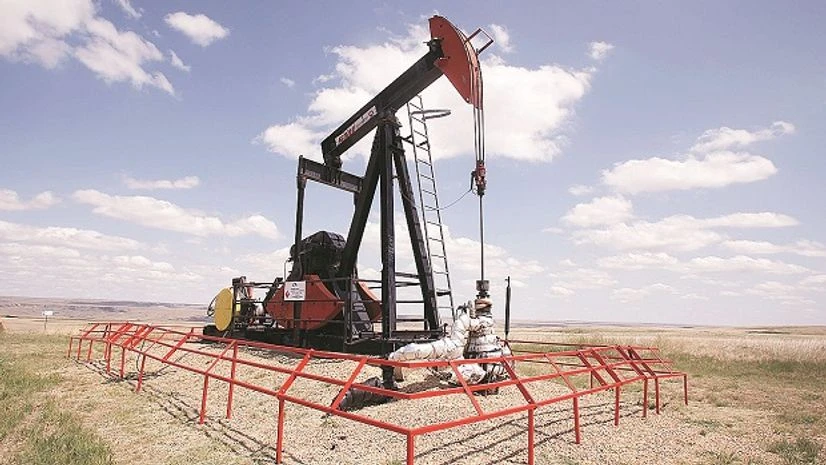Oil prices rose on Friday as the US petroleum industry braced for Hurricane Harvey, which may become the biggest storm to hit the US mainland in more than a decade.
Harvey became a category 2 storm as it crossed the Gulf of Mexico with winds of 105 mph (169 kph), 220 miles (355 km) off Corpus Christi, Texas, the National Hurricane Center said.
The hurricane is forecast to make landfall late Friday or early Saturday between Corpus Christi and Houston, both important oil refining centres.
US light crude, also known as West Texas Intermediate or WTI, was up 40 cents at $47.83 a barrel by 08:40 GMT. Brent crude was 45 cents higher at $52.49.
Energy companies have pulled workers from offshore oil platforms and halted onshore drilling in south Texas.
Just under 10 per cent of offshore US Gulf of Mexico crude output capacity and nearly 15 per cent of natural gas production had been halted by midday on Thursday, government data showed.
More From This Section
"Damage and flooding to refineries and shale fields, disrupted production in the Gulf of Mexico and infrastructure damage are unlikely to be bearish for WTI," said Jeffrey Halley, market analyst at brokerage OANDA.
US gasoline prices have risen almost 10 per cent since Wednesday to a high of $1.74 a gallon, their highest since April as refiners shut down in preparation to the storm.
The Port of Corpus Christi, Texas, was closed to vessel traffic, a spokeswoman for the city's Port Authority said.
Oil refineries in the city run by Citgo Petroleum, Valero Energy Corp and Flint Hills Resources also began shutting down.
Beyond the storm's potential impact on the oil industry, crude remains in ample supply globally despite efforts led by the Organisation of the Petroleum Exporting Countries (Opec) to hold back production in order to prop up prices.
Opec, together with non-Opec producers including Russia, has pledged to cut output by 1.8 million barrels per day (bpd) this year and during the first quarter of 2018. But not all producers have kept to their pledges and supplies remain high.
A joint Opec, non-Opec monitoring ministerial committee said on Thursday that an extension to the supply-cut pact beyond March was possible, though not yet decided.
Part of the reason for the crude glut has been rising US production, which has jumped by 13 per cent since mid-2016 to 9.53 million bpd, close to its 9.61 million bpd record from June 2015.

)
